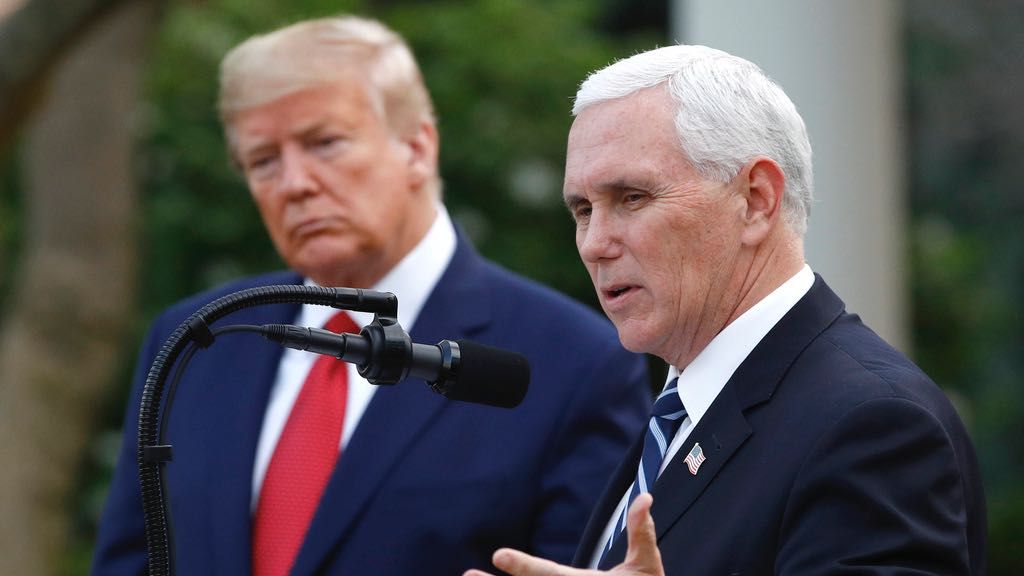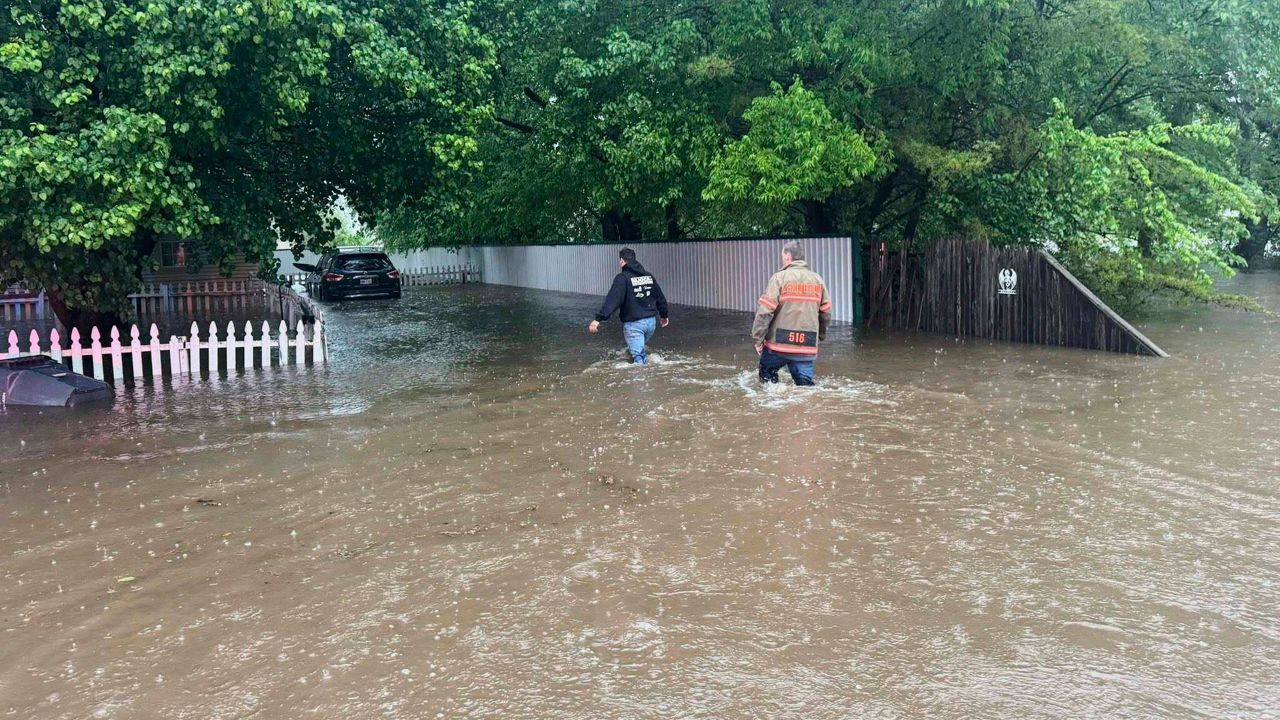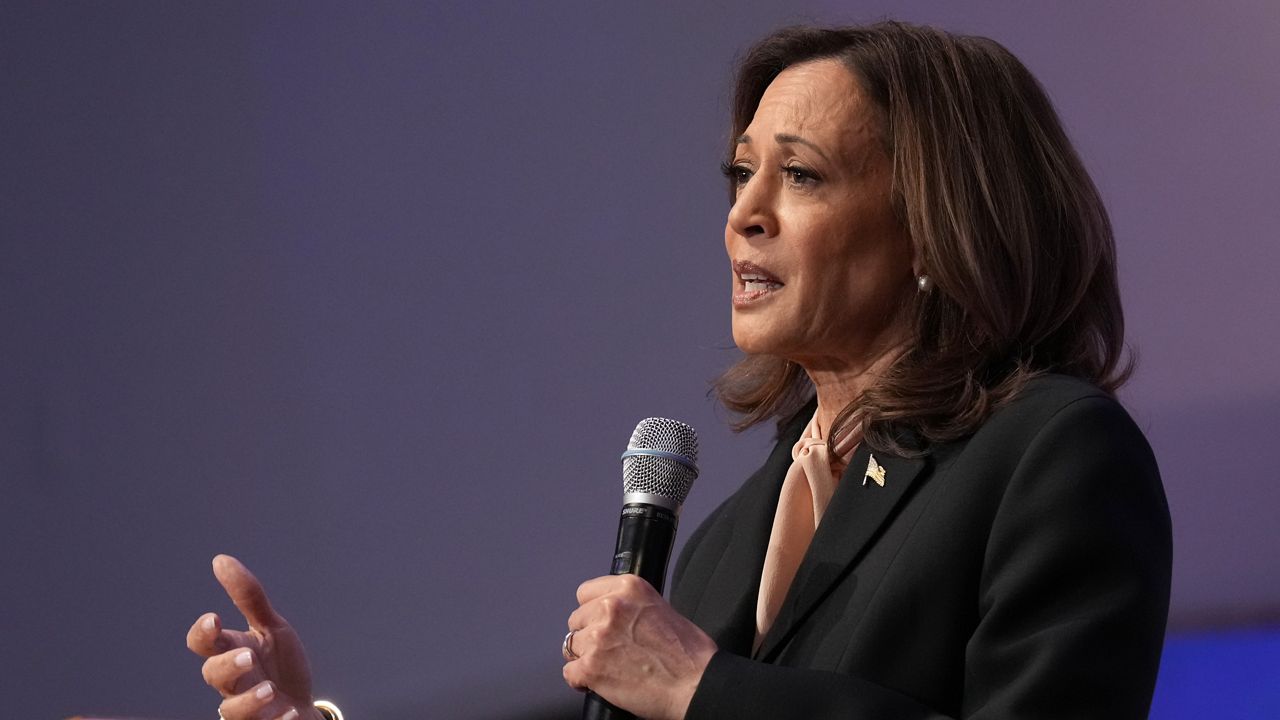It was a speech decades in the making.
After watching presidents deliver addresses to Congress dating back decades, and even delivering rebuttals to addresses from Ronald Reagan in the 1980s, President Joe Biden delivered his first address to a joint session of Congress on Wednesday, speaking to a nation facing a number of challenges, including the COVID-19 pandemic, while presenting an ambitious, sweeping plan for the future of America.
The president used his platform to call for approximately $6 trillion in spending for jobs, infrastructure and investments in the American worker, as well as other progressive agenda items, including raising the minimum wage to $15, passing sweeping voting rights and police reform legislation and raising taxes the wealthiest Americans to help pay for social safety net programs.
The president, having taken office amid the pandemic, deep partisan divisions – including the Jan. 6 insurrection at the U.S. Capitol by a mob of Trump supporters – and tensions over race and policing, expressed optimism for the future of the country.
"I can say with absolute confidence: I have never been more confident or more optimistic about America," Biden said. "We have stared into an abyss of insurrection and autocracy — of pandemic and pain — and “We the People” did not flinch."
"We're the United States of America. There's not a single thing, nothing, nothing beyond our capacity," he continued. "We can do whatever we set our mind to, if we do it together. So let's begin to get together."
Here are 8 takeaways from President Biden's first address to a joint session of Congress:

When Biden took office, the U.S. was in the midst of the deadliest month of the coronavirus pandemic, with over 95,000 lives lost in January alone. According to a Washington Post tally, only around 16 million Americans had received a COVID-19 vaccine.
As of Wednesday morning, over 234 million vaccine doses have been administered nationwide, according to data from the CDC.
On the eve of this 100th day in office, Biden took large credit for turning the tide against the deadly virus, defining his administration’s approach as moving from crisis to opportunity.
“After just one hundred days, I can report to the nation: America is on the move again,” Biden said. “Turning peril into possibility. Crisis into opportunity. Setback into strength.”
The progress, he said, is thanks in large part to the passage of his $1.9 trillion American Rescue Plan, whose funding allowed the White House to meet — and exceed — its goal of administering 200 million vaccines within 100 days.
Calling it “one of the most consequential rescue packages in American history,” the president said of the package: “We’re already seeing the results.”
“After I promised 100 million COVID-19 vaccine shots in 100 days – we will have provided over 220 million COVID shots in 100 days,” he said. “We’re marshalling every federal resource. We’ve gotten the vaccine to nearly 40,000 pharmacies and over 700 community health centers.”
Moving forward, Biden said, the United States will become “an arsenal of vaccines for other countries.” Hours earlier, the administration announced that it had “re-directed its own order of AstraZeneca manufacturing supplies to India,” which is in the middle of a drastic uptick in COVID deaths and cases.
Biden also said both Democrats and Republicans delivered on their promise to send $1,400 checks to the vast majority of American families via the American Rescue Plan, although more progressive members of his own party advocated for a $2,000 stimulus check.
As of Wednesday, the IRS sent out nearly 163 million Economic Impact Payments.
Biden said very little about his administration’s pledge to reopen a majority of K-8 schools by the end of his first 100 days, saying only: “Parents are seeing smiles on their kids’ faces as they go back to school because teachers and school bus drivers, cafeteria workers have been vaccinated.”
School reopenings have become something of a thorn in the Biden administration’s side, with the White House being accused of moving the goalposts and offering confusing guidance for educators and students hoping to go back to in-person learning.
The most recent data available from the Department of Education, released in early April and reporting data for the month of February, shows about 80% of public schools with fourth or eighth grade classes were open either part-time or full-time for in-person learning.
But according to Burbio, a school-tracking site, around 65% of K-12 students were attending “traditional” — i.e. in-person, every day classes — as of April 25. It is unclear how many of those are elementary schools.
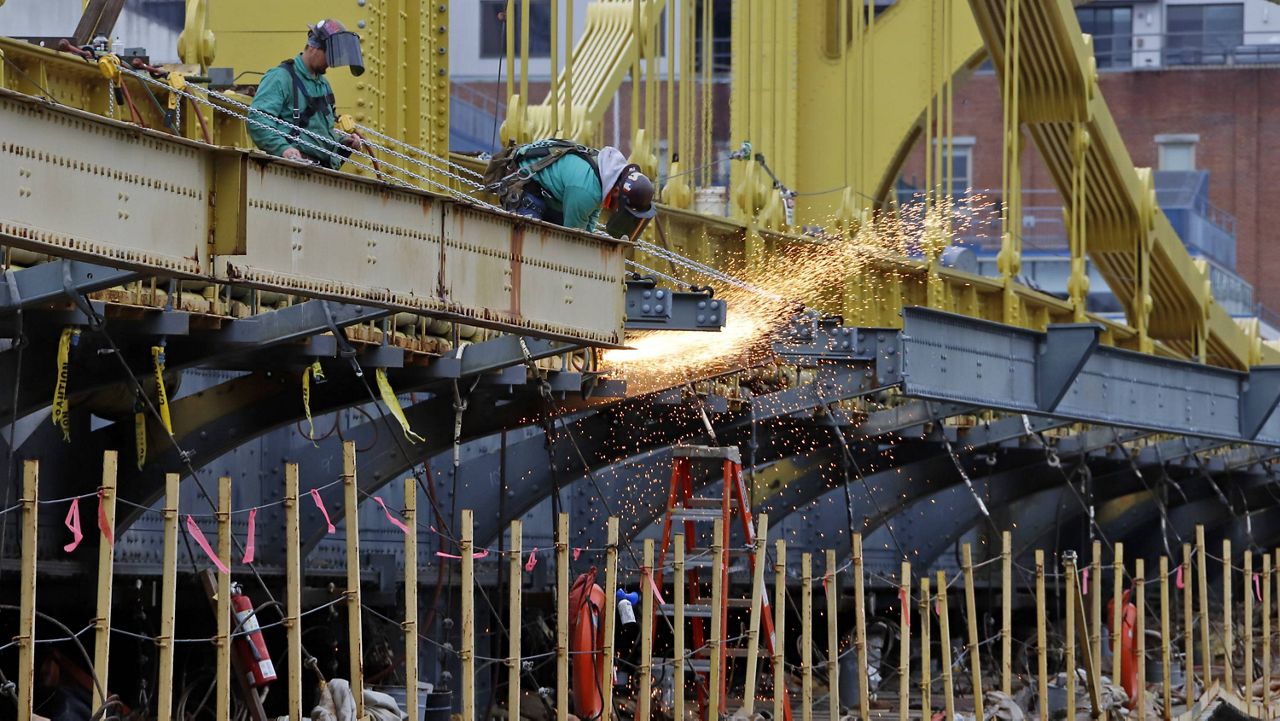
Biden touted the 1.3 million new jobs created in his first 100 days, as the economy springs back to life. He also called on Congress to pass his American Jobs Plan to help put others back to work but also to assist in the fight against climate change.
“For too long, we fail to use the most important word when it comes to meeting the climate crisis: jobs, jobs, jobs,” the president said.
(In fact, the president said the word "jobs" more than 40 times during his speech.)
Last week, Biden announced plans to cut U.S. greenhouse gas emissions in half by 2030. Many Republicans have blasted the goal as being a jobs killer.
But Biden insisted it doesn’t have to be the way.
“There is simply no reason why the blades for wind turbines can't be built in Pittsburgh instead of Beijing,” the president said. “No reason.”
Biden added that new climate-friendly industries can also create jobs for engineers, construction workers and electrical workers, among others.
"Electrical workers installing 500,000 charging stations along our highways. Farmers planting cover crops, so they can reduce carbon dioxide in the air and get paid for doing it," he continued. "There’s no reason the blades for wind turbines can’t be built in Pittsburgh instead of Beijing."
Biden said that his jobs plan will be "guided by one principle: 'Buy American.'"
“American tax dollars are going to be used to buy American products made in America to create American jobs,” he said. “That's the way it's supposed to be, and it will be in this administration.”
He added that 90% of the infrastructure jobs in his plan do not require a college degree, and 75% don’t require an associate’s degree.
“The American Jobs Plan is a blue collar blueprint to build America,” Biden said.
Biden said that his plan "will help millions of people get back to their jobs and back to their careers."
"Two million women have dropped out of the workforce during this pandemic. Two million. And too often, because they couldn't get the care they needed to care for their child or care for an elderly parent who needs help," Biden added.
"While you're thinking about sending things to my desk: let's raise the minimum wage to $15," he said. "No one working 40 hours a week should live below the poverty line.
"Let's get the Paycheck Fairness Act to my desk as well," he added. "Equal pay. It's been much too long."
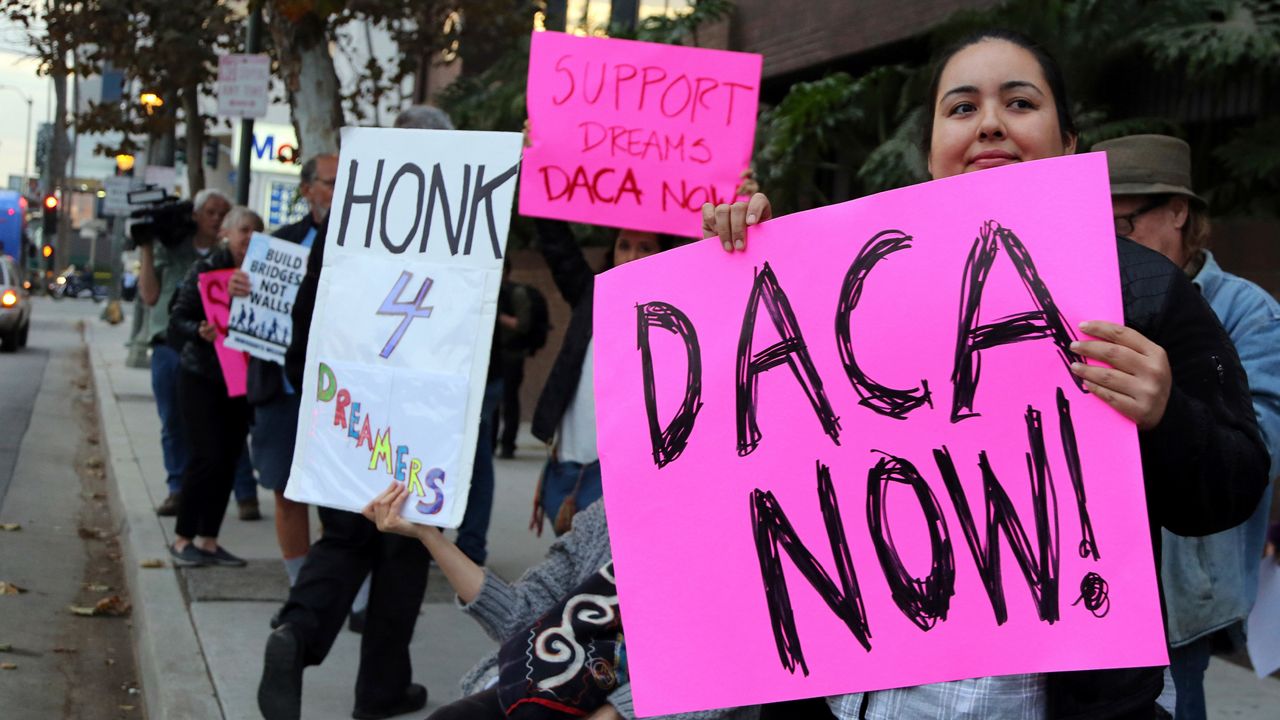
On Wednesday, President Biden called on Congress to finally pass comprehensive immigration reform, an issue that has stalled in Washington for decades.
“Let’s end our exhausting war over immigration,” the president said. “For more than 30 years, politicians have talked about immigration reform and we’ve done nothing about it. It’s time to fix it.”
On day one of his Presidency, Biden sent a sweeping immigration proposal to Congress, which includes a path to citizenship for the approximate 11 million people living undocumented in the U.S.
Yet the legislation has been partly overshadowed by increasing numbers of people reaching the U.S.-Mexico border, many of whom are fleeing poverty, violence and hunger at home in Central America. This year, U.S. officials are on track to encounter more people at the border than they have in 20 years.
“If you believe we need a secure border, pass it, because it has a lot of money for high tech border security. If you believe in a pathway to citizenship, pass it,” President Biden said of his proposal Wednesday night. “If you actually want to solve a problem, I’ve sent a bill. Take a close look at it.”
However, the bill faces a steep climb in the Senate, where it’s unlikely to garner enough Republican support to pass. Conversations about immigration reform on Capitol Hill are ongoing, and a bipartisan pair of lawmakers proposed their own legislation last week to address migration at the border.
In the meantime, the president called on Congress to aid Dreamers — immigrants brought who entered the country unauthorized as children — as well as farmworkers and people with Temporary Protected Status (TPS).
“If you don’t like my plan, let’s at least pass what we all agree on,” the president said.
The House has already passed bills that would address those groups, and they passed with some Republican support.
“Immigrants have done so much for America during the pandemic and throughout our history,” the president said Wednesday from the House chamber.
Earlier in the day, First Lady Jill Biden hosted a DACA recipient named Javier Quiroz, who’s been working as a nurse caring for COVID patients throughout the pandemic. He was one of her guests at a virtual reception that replaced the traditional viewing box inside the Capitol where the first lady usually hosts guests that personify the president’s priorities.
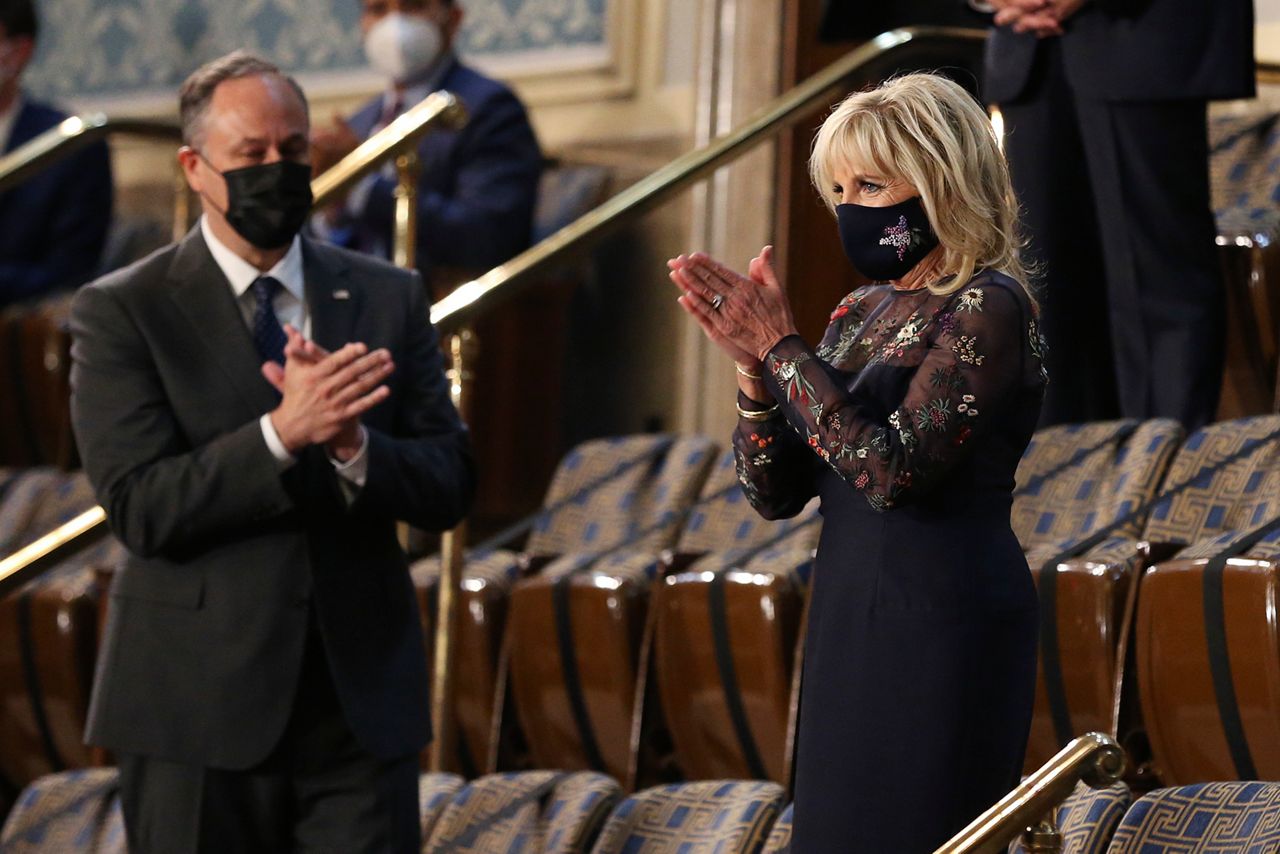
President Joe Biden formally debuted his sweeping $1.8 trillion “human infrastructure” plan during his address, the American Families Plan, an investment in domestic priorities including free community college, universal preschool and a comprehensive, nationwide paid leave program that would guarantee 12 weeks of paid family and medical leave.
"No one should have to choose between a job and paycheck or taking care of themselves and a loved one – a parent, spouse, or child," Biden said of the leave program.
On the education front, Biden’s plan calls for $200 billion toward free “universal, high quality preschool” for all three- and four-year-olds and $109 billion for two years of free community college, as well as billions in investments toward Pell Grants for low-income students, college retention and completion rates, and make an investment in HBCUs, TCUs and MSIs.
The plan also calls for $9 billion for American teachers, including training and support, boosting diversity and addressing shortages.
Discussing his education proposals, Biden turned his attention to his wife, Dr. Jill Biden, who teaches community college while still serving as First Lady.
"Any country that out-educates us is going to outcompete us," Biden recounted what Dr. Biden often says to him, and noted that she will be leading the effort on education.
Biden also called for an extension of the Child Tax Credit through 2025 and make the credit permanently refundable, as well as other tax cuts in the American Rescue Plan which benefit lower- and middle-income workers and families.
The president also discussed his proposed tax hikes outlined in the plan, which he said "will only affect three tenths of 1% of all Americans."
"I will not impose any tax increases on people making less than $400,000," Biden said. "But it's time for corporate America and the wealthiest 1% of Americans to pay their fair share. Just their fair share."
"I'm not looking to punish anybody," he added. "But I will not add a tax burden to the middle class"
"Sometimes I have arguments with my friends in the Democratic Party," Biden noted. "I think you should be able to become a billionaire or a millionaire. But pay your fair share."
The president pledged that "the IRS is going to crack down on millionaires and billionaires who cheat on their taxes."
"When you hear someone say they don't want to raise taxes on the wealthiest 1 percent or corporate America," Biden posed, "Ask them, whose taxes do you want to raise?"
In a stinging rebuke against the 2017 tax plan passed by his predecessor and Congressional Republicans, Biden said that “it was supposed to pay for itself. That was how it was sold. And generate vast economic growth.”
“Instead, it added $2 trillion to the deficit,” Biden continued. “It was a huge windfall for corporate America and those at the very top. Instead of using the tax saving to raise wages and invest in research and development, it poured billions of dollars into the pockets of CEOs. In fact the pay gap between CEOs and their workers is now among the largest in history.”
"My fellow Americans, trickle-down economics has never worked. It’s time to grow the economy from the bottom up and middle-out."
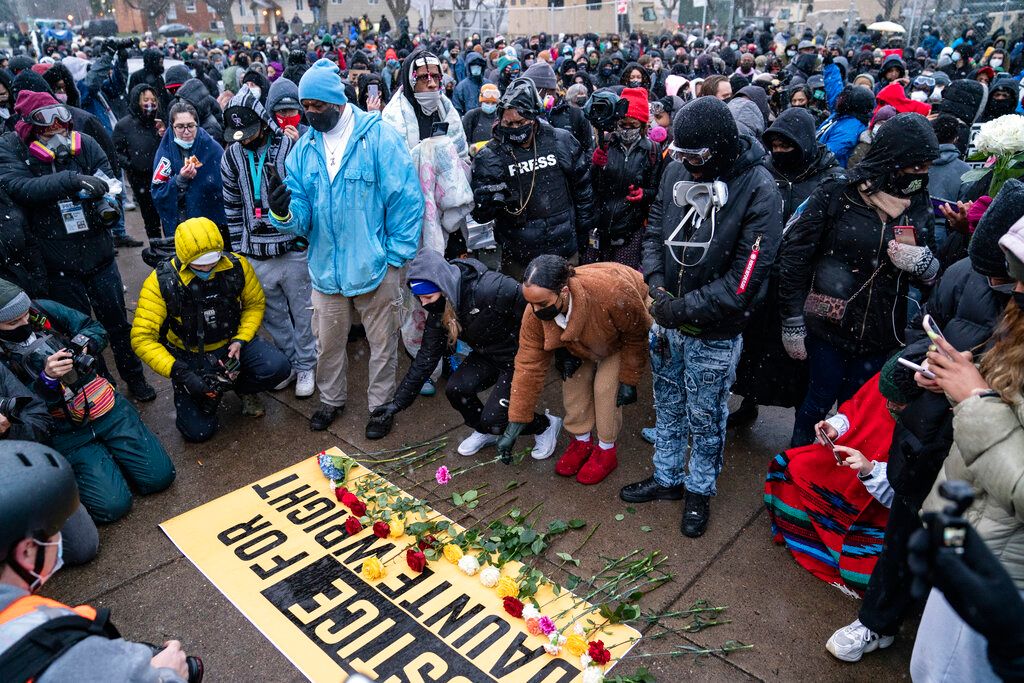
Speaking a little more than a week after former Minneapolis police Officer Derek Chauvin was convicted of murdering George Floyd, the president urged Congress to pass police reform legislation.
“We've all seen the knee of injustice on the neck of Black Americans,” he said. “Now's your opportunity to make some real progress. We have to come together to rebuild trust between law enforcement and the people they serve to root out systemic racism in our criminal justice system.”
The House already has passed a reform bill, dubbed the “George Floyd Justice in Policing Act,” which includes measures such as establishing a national police misconduct database, creating a use-of-force standard, and banning chokeholds and no-knock warrants.
“I know Republicans have their own ideas and are engaged in very productive discussions with Democrats in the Senate,” Biden said. “We need to work together to find a consensus. But let's get it done next month, by the first anniversary of George Floyd’s death.
“We have a giant opportunity to bend the arc of the moral universe toward justice — real justice.”
Biden added that he believes the “vast majority” of police serve their communities “honorably.”
The president said his call to root out systemic racism also extends to striving for equality in good jobs, good schools, housing, and clean air and water.
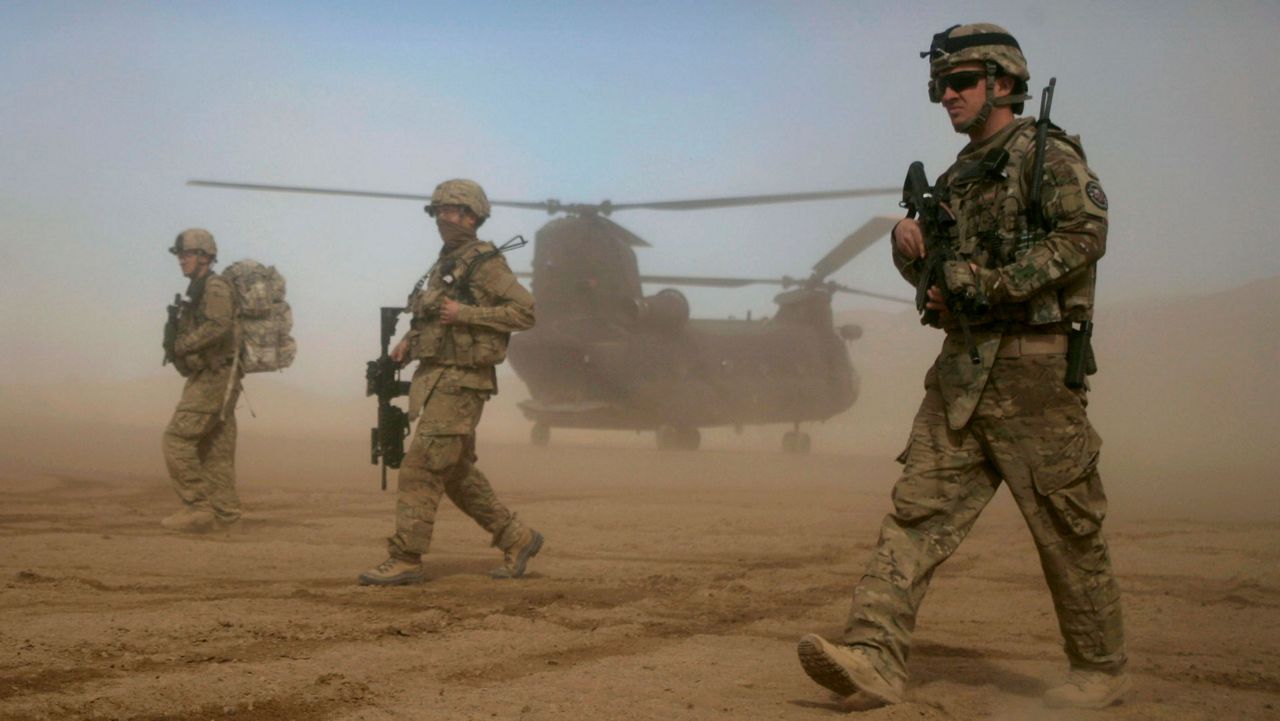
In his speech Wednesday, the president repeated his promise to withdraw United States troops from Afghanistan, which he plans to do by Sep. 11.
“American leadership means ending the forever war in Afghanistan,” he said. “War in Afghanistan … was never meant to be a multi-generational undertakings of nation-building.”
The president’s mention of Afghanistan was met with a standing ovation from Democrats and applause from a few Republicans, including Sen. Ted Cruz (R-Texas), but most GOP members in the audience stayed seated.
“I’m the first President in 40 years who knows what it means to have had a son serving in a warzone,” Biden said, invoking the memory of his son, Beau, who died in 2015 after battling brain cancer.
"Today we have service members serving in the same war as their parents did," Biden said. "We have service members in Afghanistan who were not yet born on 9/11."
The withdrawal is set to begin on May 1, though the State Department already announced it’s starting to whittle down its staff at the U.S. Embassy in Kabul.
Some Republicans and security experts fear the U.S. departure will create a vacuum for terrorists to reemerge in the region, though the administration has committed to keep a close eye and provide aid to Afghanistan after U.S. troops depart.
“After 20 years of American valor and sacrifice, it’s time to bring those troops home,” Biden told lawmakers gathered Wednesday night.

In again calling gun violence in America an “epidemic,” Biden said he thinks it’s time for Republicans to support gun control measures.
“I don't want to become confrontational, but we need more Senate Republicans to join the overwhelming majority of Democratic colleagues and close the loopholes (and require) background check purchases of guns,” he said. “We need a ban on assault weapons and high-capacity magazines.
“Talk to most responsible gun owners and hunters,” Biden continued. “They'll tell you there's no possible justification for having a hundred rounds in a weapon. What do you think? Deer are wearing Kevlar vests?
"The country supports reform, and the Congress should act,” Biden said. This shouldn’t be a Red vs. Blue issue.”
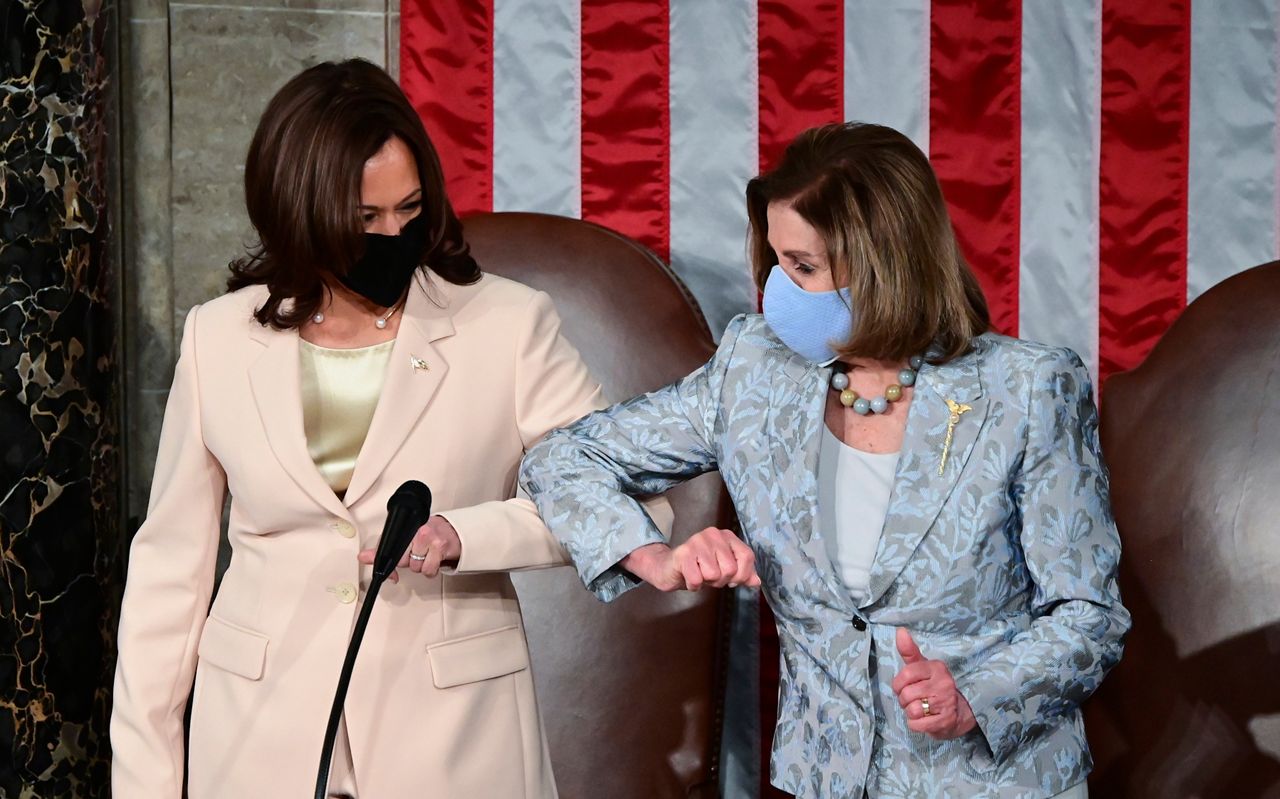
While much of the pageantry and trappings of a traditional joint session of Congress were dashed due to the COVID-19 pandemic, the night was not without a groundbreaking historic first.
For the first time in United States history, the two people sitting behind the president – the Speaker of the House and the Vice President – were women.
Vice President Kamala Harris – the first woman, Black person and person of South Asian descent to serve in the role – and House Speaker Nancy Pelosi – who ascended to become the first woman to hold the role under George W. Bush’s administration – bumped elbows as they stood at the dais ahead of Biden’s speech.
"Thank you all Madam Speaker, Madam Vice President," Biden said as he began his speech. "No President has ever said those words – and it's about time"
Ahead of the speech, women’s advocates said seeing the two women seated atop the dais together for the first time would be a “beautiful moment.”
“This is a great start and we have to continue to move forward to give women their equal due,” Christian Nunes, the president of the National Organization for Women, told The Associated Press.
Advocates also noted that much more needs to be done to advance the rights of women nationwide, including passing the Equal Rights Amendment – and ultimately seeing a woman serve in the Oval Office.
“For all of us who care about women’s public leadership, we still look forward to the day when the person standing at the podium, in front, is a woman,” Debbie Walsh, the director of the Center for American Women and Politics at Rutgers University, told the AP. “But for now this is a particularly gratifying moment.”






